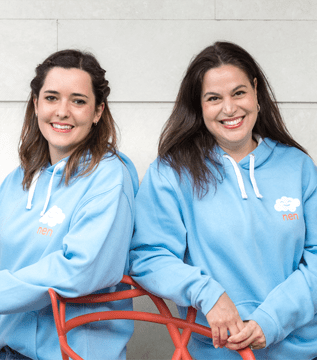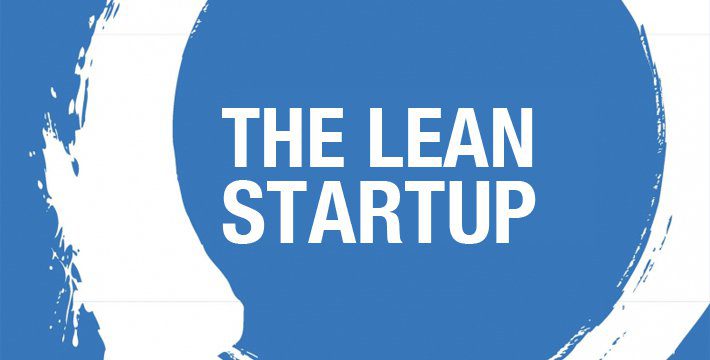
Article
How nen DTx Will Help Kids with Cancer to Manage Pain
This post was previously on the Pathfinder Software site. Pathfinder Software changed its name to Orthogonal in 2016. Read more.
I was a judge and mentor at Lean Startup Machine Chicago this weekend and had a blast.
Lean Startup Machine is a new type of startup competition that started in New York this July. Chicago is the second of hopefully many to come. Unlike the typical hackathon or startup beauty contest, the point of the weekend is to end up with smarter entrepreneurs.
Our goal was to recruit entrepreneurs of all stripes (we had marketers, designers, developers, jacks of all trades), have them form teams around the top six ideas that were pitched, and then develop those ideas according to lean startup principles.
That meant doing customer development before building anything – getting out of the building and validating hypotheses about customer segments and customer problems, describing an initial MVP (minimal viable product) and getting customer feedback on that MVP.
A lot to ask for in a short period of time. Even more challenging if some of those assumptions and hypotheses end up being invalid (which they invariably do!) and you have to pivot. As Eric Ries says – maximizing learnings and pivots in minimal time are the name of the game for a successful startup.
We were joined on Friday by Eric Ries via video conference, by Kevin Taylor and by Brant Cooper and Patrick Vlaskovits, authors of the Entrepreneur’s Guide to Customer Development (just get it, and thank me later) who had spoken to a packed house at the Chicago Lean Startup Circle the night before. That presentation went front page on Slideshare – you can see it here.
When the teams formed and started working together, you could feel that startup energy: Long hours, hard work and the exhilaration of teams of smart people working on something new.
Hackathonia and Obie Fernandez (who came in as a participant) were live blogging the event, and there was a twitter stream filled with survey requests, landing pages, and common customer development mistakes.
It’s amazing how much easier some of the mechanics are today than they once were – between tools like Unbounce, Wufoo, SurveyMonkey, twitter, facebook, craigslist, performable and Tumblr, as well as a cell phone and boots on the pavement, you can get a lot done in a weekend.
With daylight savings time, the groups each had an extra hour (55 rather than 54) and they needed it.
At 3 pm on Sunday afternoon, the teams presented their assumptions, validations, and pivots, as well as the MVP they finished with.
In the end, we picked renterID as the winner. They got some impressive insights out of the customer discovery – with an aha moment when they heard from landlords that they would pay up to a month’s rent for a qualified renter, and interviews with renters they called from craigslist. In the end, they got letters of intent from a number of landlords, and a clever business model thanks to some smart pivots. Not bad for a weekend’s work.
While not all teams got as far as they did, they all got better and sharper as the weekend went along. As one of the participants emailed me afterward:
This weekend was truly like no other. I went into it pumped up and ready to create, build and polish. Instead, I found myself asking more and more questions to the assumptions of what would be the product that could help people out … Point is making a startup is a huge pain when you want to build what you think the consumer market wants before asking them. This mindset is hard to break and even then starting a startup is hard but it is NOT impossible.
I did my best and worked harder then I ever have by absorbing, applying and retrying all of the valuable information that I learned this entire weekend.
Most of the participants didn’t know much about lean startups and customer development ahead of time so there were some common mistakes – too much reliance on surveys and bad survey techniques, not separating customer segment and customer problem hypotheses from solutions in testing, and missing the core of the product and focusing too much on marketing and who the team members knew who could help promote the app.
It was interesting that a number of groups focused on market plays – they’re the hardest to do and require the most validation and pivoting work. I’m a sucker for markets and disintermediation plays myself, so I understand. In fact, one of them won, but a number of others only addressed one side of the market when they needed to understand both.
Thanks to Brant and Patrick for flying in from California and sharing their knowledge, expertise, and enthusiasm. If you need mentoring on your startup, these guys are the real deal.
Big props to Ben, Kyle, Trevor and Josh for putting on the first Lean Startup Machine in New York in July and for taking the next step of bringing this to another city.
Look out cities of America – the Lean Startup Machine may be set up in your town soon. Expect some smarter entrepreneurs to appear 54 (or 55) hours later.
Related Posts

Article
How nen DTx Will Help Kids with Cancer to Manage Pain

Article
How Industry Experience Shaped Creation of DTx Startup nen

Article
A Conversation with Eric Ries at the Chicago Lean Startup Circle

Article
Faster Feedback Before Development Starts: Feasibility